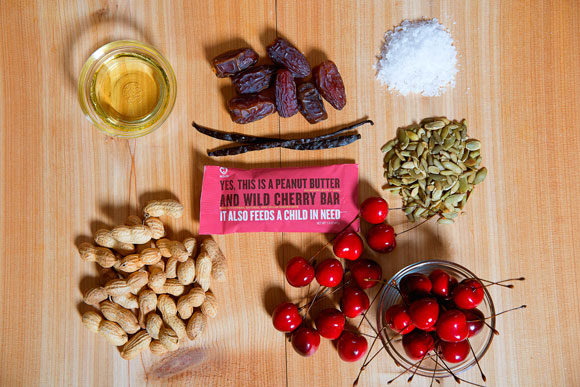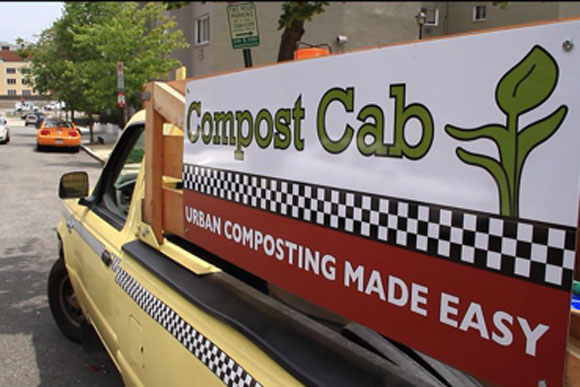Forget "greed is good." Today's entrepreneurs want to make money and save the world at the same time.
Sit in on just about any startup pitch session across the DMV and you will inevitably hear the words "double-bottom-line enterprise" and "triple-bottom-line business" bandied about. Founders and investors are listening to their consciences, growing enterprises from the ground up that not only seek to make financial profit, but also to improve social and environmental conditions around the globe. (A double-bottom-line business measures financial and social outcomes to determine its success; a triple-bottom-line enterprise adds an environmental component to its success measure.)
But is it possible to do well by doing good? And what motivates an entrepreneur to add a measure of social or environmental impact to his or her bottom line? Elevation DC talked to three people at the heart of social enterprise to get some insight.
The One for One Model
Maybe you've seen NOURI bars at
Bourbon Coffee or at
Smucker Farms in the District, or have found them
online when searching for snack bars with real ingredients.
NOURI, founded in 2012, makes snack bars with a by-now-familiar twist: for every bar sold to a paying customer, the company provides food for a child in need. Think
TOMS shoes, but for snacks.

This "buy one, donate one" model has been replicated with other consumer goods locally, including
peanut butter and
sunglasses. NOURI founders Veneka Chagwedera and Jared Crooks saw an opportunity to use this model to feed people. Or, as Chagwedera says, ending hunger for both peckish office workers and hungry kids.
"I grew up in Zimbabwe," she says. "I wanted to find a way to give back. Several of my classmates dropped out of school. They had such precarious educational lives."
When families need extra hands to make ends meet, Chagwedera says, they pull their children from school and send them to work. Providing meals at school is one way to keep children in the classroom, since parents have one fewer mouth to feed at home. NOURI provides hot meals for children in school in Botswana, Guatemala, and Kenya through a partnership with
Stepping Stones International, and in the United States, with
Kids Against Hunger. NOURI has distributed more than 24,000 meals over the last 12 months.
"This is not a band-aid," Chagwedera says. NOURI keeps an eye on the children it feeds by "having regular meetings with its partners and evaluating the number of meals provided. We also track the health and overall school performance of the children including BMI (body mass index) and grades. We get reports from them quarterly about the use of the funds for the meals."
"I wanted to find a way to give back."
For Chagwedera, founding a for-profit company was the way to go to do the most good. Nonprofits can't always weather the economic storms. "In 2008, people stopped giving," she says. "We built a self-sustaining model. We can do more for kids [that way]."
Overall, NOURI is "doing well and is a profitable business," Chagwedera says. "We've grown our reach over the past few months and now sell our bars internationally."
The Ripple of Change Model
Some social changes happen across the globe, and other social changes happen in the backyard. Composting, or turning organic material like food scraps into fertilizer for gardens and farms, has been catching on as gardeners and farmers turn away from chemicals to grow healthy crops. But composting at home has its share of drawbacks, including of lack of space, smell and curious critters. Enter
Compost Cab, founded in 2010 by Jeremy Brosowsky.
Compost Cab picks up compostable materials from homes and businesses in the District and turns that "trash" into soil, most of which is donated back to nonprofit and urban farms. Compost Cab charges roughly $32 per month for its service and currently has more than 500 subscribers, including the Hyatt on Capitol Hill, which generates between one and two tons of compostable material per week. Those food scraps would otherwise go to a landfill. According to Brosowsky, business has been good: "We've seen year-over-year growth in subscribers, employees, and revenue every year since we launched in 2010…our customer base today is five times larger than it was in 2011."
"We make magic," Brosowsky says. "We turn food waste into food."

While Brosowsky would like to turn even more waste from more customers into food, he knows that being in the "community composting" business is a question of numbers. "We know our service is expensive," he says. "We had to start somewhere. It's a density game. The more [people] we have [composting], the cheaper it is for the neighborhood."
As Compost Cab continues to grow, Brosowsky isn't sure where he should draw the line in terms of service area. "[Community composting is] inherently local," he says. He'd like to license Compost Cab's technology so that "anyone can build their own community composting [business]. It's sustainability as a service."
Brosowsky has a long view of composting, both of its eventual ubiquity and its ability to connect people to their community. "Municipal composting is coming," he says, "like municipal recycling was coming 40 years ago. The environmental movement set the stage, and scalabaility happened when the waste haulers and landfill owners figured out a way to monetize [the process]. As composting grows, communities across our region, and across America, will need help making it a reality. We're excited to be a part of this evolution, and expect our business to evolve, too. We're building a strong brand in a fast-growing sector, and as a business, it feels like a pretty good place to be."
"As municipal composting grows, community composting grows," he says. "How do you connect people to their community to make it a better community? Composting is a catalyst for that [connected] behavior. It's a gateway drug for sustainability. That's how we approach it. It's a way of getting people hooked on good behavior."
"All things being equal, people want to do the right thing," he says. "We get paid to make people feel good. We enable them to do good."
Helping Social Enterprise Grow"There has never been a better time to be a social entrepreneur."
In the District, there are incubators and accelerators for B2B—business to business--and B2C—business-to-consumer--enterprises. Now, thanks to the
S&R Foundation, social enterprises have their own incubator,
Halcyon in Georgetown.
Ryan Ross, program manager for Halcyon, says that in order for social enterprises to fulfill their missions, the social impact they have has to be "intentional and measurable. If not," he says, "then businesses aren't optimizing and they're not working toward that double-bottom line."
Measuring the social impact of a business goes beyond putting it in writing. "If a company isn't measuring and optimizing its impact to its board and beneficiaries, its revenue will take a hit," he says. "Successful, high-functioning nonprofits and social enterprise for-profits are good at measuring."
Learning how to measure social impact is one lesson the first class of entrepreneurs at Halcyon will learn when their stay kicks off in September. But as for what drives someone to start a double-bottom line business in the first place, Ross echoes Brosowsky's idea of connection.
"People are interested in seeing the purpose connected with their work," he says, "whether it's social enterprise, startups, government [or something else]. People are starting to demand that. They want to have a positive impact on the world. For those that are entrepreneurial, because of this trend and because the marketplace is supporting it, people are moving toward double-bottom line [enterprise]."
"It's not just the [enterpreneurs]," Ross continues. "They attract really talented employees who want to see a connection between the work that they're doing and the impact that they're having in the community. They want to feel like they're making a difference."
Ross maintains that social enterprises are "eminently viable in today's marketplace. The false choice between purpose and profit is being laid bare by successful social enterprises across the globe that have built their impact into the core of their business model."
Whereas many people might view "government gridlock, infighting, and [a reduction in] budgets" as roadblocks, Ross says that an entrepreneur sees those challenges as opportunities and chances for change. "Many trends are pushing social entrepreneurs to the forefront of innovation," he says, "[including] the greater acceptance of the sharing economy, the growth of corporate social responsibility, increased capital [for] impact investing and the rapid expansion and lower-price point to access technology. There has never been a better time to be a social entrepreneur."